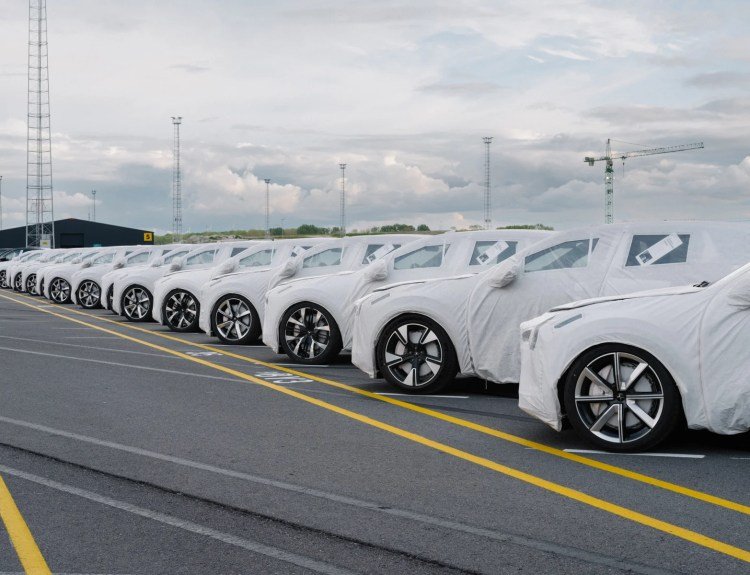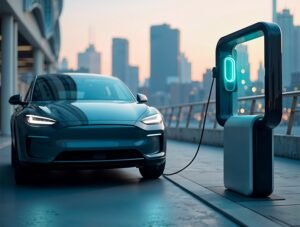Polestar (Nasdaq: PSNY) is taking the next steps in reducing its supply chain emissions by integrating renewable fuels on its ocean freight routes, which account for around 75% of Polestar’s total transportation emissions.
Polestar is now also operating its Vehicle Processing Center (VPC) in Belgium on 100% renewable electricity. The VPC acts as a finishing and preparation point for vehicles before delivery to European customers, including charging them with renewable electricity.
Renewable Fuel
With Polestar 3 and Polestar 4 production now ramping up, renewable fuel will initially be used for approximately 65% of the outbound ocean freight of produced vehicles from Asia to Polestar’s VPC in Zeebrugge, Belgium. Polestar also plans to integrate renewable fuels on freight from North America during the second half of the year, as production of Polestar 3 expands to South Carolina. Through the utilisation of B30 Biofuel, which contains 30% Fatty Acid Methyl Esters (FAME), emissions from these shipping routes can be reduced by approximately 20-25%, compared with conventional Sulphur fuel oils.
100% FAME fuel
Polestar has taken steps to decarbonize inter-continental inbound ocean freight for production materials and spare parts distribution, which are now running on 100% FAME fuel, reducing greenhouse gas emissions by 84% compared to fossil fuel. The FAME fuel is based on renewable sources, including waste cooking oil. No feedstock related to palm oil or palm oil production is used.
Jonas Engström, Head of Operations at Polestar, says: “This is an important step in Polestar’s goal to reach climate neutrality by 2040. Becoming truly climate neutral means eliminating all greenhouse gas emissions across our operations, and all phases of our cars’ life cycles, including emissions from the supply chain. As we enter an accelerating phase of growth with our model line-up and manufacturing footprint expanding, there is an extra emphasis on the need for sustainable logistics solutions.”

The 2023 Sustainability Report by Polestar was recently made public
Polestar recently published its Sustainability Report for 2023. Greenhouse gas emissions per sold car were reduced by 9% during 2023 compared to
2022, illustrating that it is possible to decouple growth from increased emissions.
About Polestar
Polestar (Nasdaq: PSNY) is the Swedish electric performance car brand determined to improve society by using design and technology to accelerate the shift to sustainable mobility. Headquartered in Gothenburg, Sweden, its cars are available online in 27 markets globally across North America, Europe and Asia Pacific.
Polestar plans to have a line-up of five performance EVs by 2026. Polestar 2, the electric performance fastback, launched in 2019. Polestar 3, the SUV for the electric age, launched in late 2022. Polestar 4, the SUV coupé transformed, is launching in phases through 2023 and into 2024. Polestar 5, an electric four-door GT and Polestar 6, an electric roadster, are coming soon.
New Aston Martin Vantage GT3 takes first international win (gearsme.com)
The Polestar 0 project supports the company’s ambitious goal of creating a truly climate-neutral production car by 2030. The research initiative also aims to create a sense of urgency to act on the climate crisis, by challenging employees, suppliers and the wider automotive industry, to drive towards zero.





